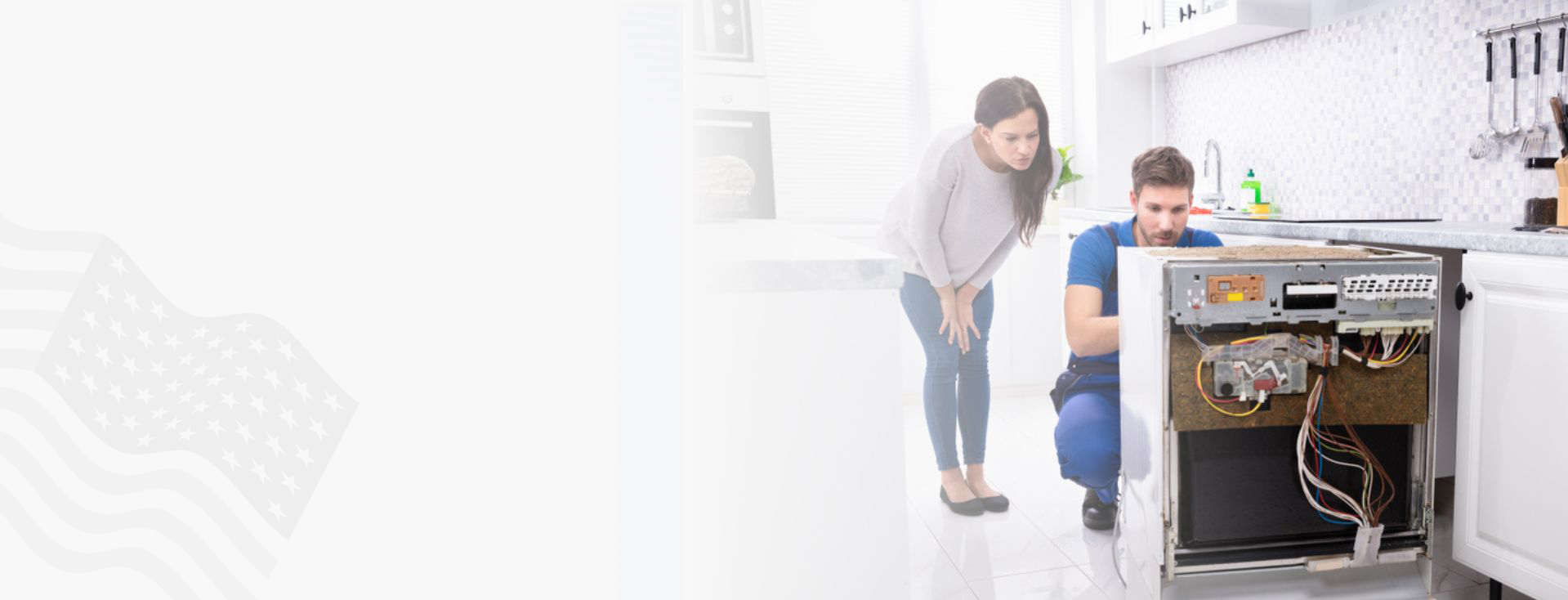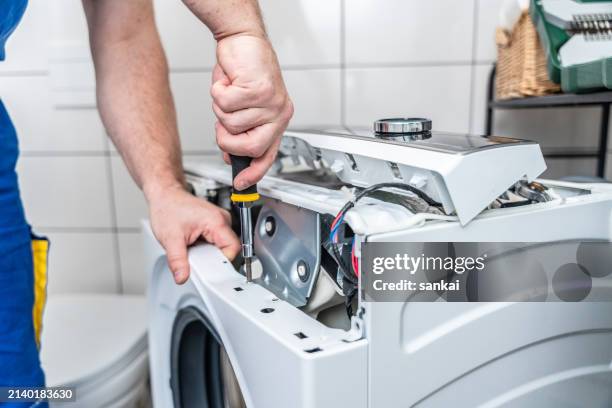The Ultimate Guide to Understanding Device Repair Work at Home
When your fridge stops cooling or your oven refuses to warm, it can feel frustrating. Recognizing appliance fixing in the house can conserve you money and time. You'll find out to recognize symptoms, make use of necessary devices, and follow a methodical troubleshooting procedure. Prior to you begin, there are essential safety preventative measures you need to take into account. What are the most common problems, and exactly how can you fix them? Let's explore the basics.
Usual Device Troubles and Their Signs and symptoms
When your devices begin acting up, it's necessary to recognize the indications early on. Overlooking them can cause larger problems and pricey repair work. For instance, if your fridge isn't cooling down effectively, you may see warm spots or condensation creating. This could show a stopping working compressor or a blocked vent.Your dishwashing machine may show problems through dirty recipes or unusual noises throughout cycles. If you listen to grinding or clanking, it's time to investigate.A cleaning equipment that will not rotate or drain can leave you with soaked washing, suggesting a blocked drain or a malfunctioning pump.Lastly, if your stove's temperature appears off or it takes for life to preheat, you may be managing a defective thermostat. By remaining alert to these signs and symptoms, you can attend to issues prior to they intensify right into significant repair services.
Necessary Devices for Home Appliance Fixing
When you're taking on device repairs at home, having the right tools is vital. Fundamental hand tools like screwdrivers and pliers will certainly assist you take apart and take care of various appliances, while electric testing tools assure you're functioning securely with wiring. Allow's discuss what you require to get going on your repair journey.
Basic Hand Devices
Having the right devices is necessary for efficient home appliance repair work in the house. Start with a trusted screwdriver collection, including both flathead and Phillips kinds, as screws are common in appliance setting up. Pliers are additionally crucial; they assist with gripping, turning, and reducing wires or small parts. A set of needle-nose pliers can get to tight spots conveniently. You'll require a great flexible wrench for tightening up or loosening nuts and screws. An utility blade comes in handy for reducing through product packaging or insulation. Finally, do not fail to remember a tough workbench or surface to securely organize your tools and parts. With these fundamental hand tools, you'll be well-prepared to tackle most home appliance repair services that come your way.
Electric Screening Tools
Together with basic hand tools, electric testing gadgets play a necessary duty in appliance repair work. These devices help you identify electrical concerns and guarantee devices function securely. A multimeter is crucial; it gauges voltage, present, and resistance, enabling you to determine troubles promptly. A non-contact voltage tester is one more essential, letting you detect live cords without making straight contact, improving your safety and security. Clamp meters are terrific for measuring existing circulation in wires without separating them, conserving you time and effort. In addition, circuit testers can swiftly inspect if outlets are working appropriately. By making use of these tools, you'll enhance your troubleshooting process and improve your fixing skills, making device upkeep a whole lot easier.
Step-by-Step Overview to Diagnosing Home Appliance Issues
When your device breaks down, it can be discouraging, yet diagnosing the concern does not need to be overwhelming. You'll learn to recognize typical troubles and use reliable troubleshooting strategies. Allow's stroll with the steps to obtain your home appliance back in working order.
Usual Home Appliance Issues

Fixing Methods Discussed

Fixing Major Kitchen Appliances: A Closer Look
Have you ever before asked yourself exactly how to take on common issues with your kitchen home appliances? Fixing significant cooking area devices like refrigerators, stoves, and dishwashers can be much easier than you think. Beginning by determining the trouble-- whether it's a fridge not cooling or an oven that will not warm. Frequently, a simple reset or checking the power resource can resolve the issue.For fridges, tidy the condenser coils and inspect the door seals. If your oven's not heating, check the burner and thermostat. Dishwashing machines could simply require a tidy filter or a reset to obtain them back at work. Constantly disconnect the device before diving into repair work to assure your safety.Don' t neglect to consult the customer guidebook for details fixing pointers connected to your version. With a bit of patience and the right tools, you can confidently tackle device repairs and save money at the same time!

Troubleshooting Laundry Devices: Tips and Techniques
When your laundry home appliances start acting up, it can feel frustrating, yet troubleshooting them does not have to be a hassle. Start by inspecting the power supply. Validate the appliance is connected in and the outlet is working. Next off, check the door or lid switch; a malfunctioning button can prevent the equipment from operating.For washers, if it's not spinning, look for unbalanced lots. Redistributing the clothes might fix the issue. If your dryer isn't heating, clean the lint filter and examine the air vent for blockages.Listen for uncommon noises; they can suggest an issue. If your device is dripping, inspect the hoses for fractures or loosened connections. File any error codes shown on digital screens, as they can lead you in recognizing the problem. Seek advice from the customer manual for particular fixing suggestions related to your model.
Safety And Security Preventative Measures to Take During Repairs
Prior to you begin any kind of appliance repair work, it's important to focus on security to avoid crashes or injuries. Disconnect the device or transform off the circuit breaker to guarantee no power reaches it while you function. Use insulated devices to reduce the danger of electric shock. Put on security goggles and handwear website covers to secure yourself from sharp sides or debris (Dependable Refrigeration & Appliance Repair Service Dryer repair near me).Make certain your work space is neat and well-lit, so you can see what you're doing. Keep children and pets far from the area to avoid disturbances and prospective hazards. If you're dealing with gas appliances, be added cautious; look for leaks before proceeding.Take your time, and do not rush through fixings. If you really feel unsure regarding any type of action, it's much better to pause and research than to guess. Adhering to these safety measures will certainly aid create a much safer setting for your DIY device fixing project
When to Call an Expert for Help
Exactly how do you know if it's time to call in a professional for device fixings? If you've tried basic troubleshooting without success, it's a clear sign. If your appliance still will not start or reveals uncommon noises after resetting it, do not think twice to seek professional help.When you observe leaks, smoke, or melting scents, focus on security and call a professional promptly. These concerns can lead to more significant damage or pose dangers to your home.Also, if your device is under warranty, getting in touch with a specialist is typically the most effective path. They can ensure that repair work won't invalidate your guarantee, saving you money in the long run.Finally, if you're not sure or uncomfortable with complex fixings, it's smart to leave it to the experts. Keep in mind, dealing with challenging concerns without the appropriate expertise can cause pricey blunders. Depend on a specialist when in uncertainty!
Regularly Asked Concerns
How Can I Avoid Home Appliance Troubles in the Future?
To avoid device issues in the future, you need to execute regular maintenance, look for wear and tear, tidy filters, and stay clear of overloading. Staying proactive will aid expand their life-span and keep them running smoothly.
What Are one of the most Usual DIY Home Appliance Repair Mistakes?
You could overlook security precautions, avoid troubleshooting actions, or use incorrect tools when attempting do it yourself appliance repair services. Rushing the procedure or neglecting supplier standards can bring about more significant problems and pricey blunders. Stay patient and educated!
How Do I Know if a Component Needs Substitute?
You can inform if a part requires substitute by inspecting for unusual noises, leakages, or inconsistent efficiency. If the appliance struggles to run appropriately or reveals noticeable damages, it's most likely time for a replacement.
Can I Make Use Of Generic Parts for Appliance Fixes?
Yes, you can use common components for device repair work, but determine they're compatible - Dryer repair Oro Valley Dependable Refrigeration & Appliance Repair Service. Generic parts could conserve you cash, yet they could affect efficiency or longevity, so evaluate your alternatives meticulously prior to choosing
What Warranties Cover Home Appliance Fixes?
The majority of device guarantees cover fixings for producing issues, but they frequently omit damage from abuse. Inspect your service warranty terms thoroughly, as some could call for making use of certified service technicians and original parts for protection to stay legitimate.
 Hallie Eisenberg Then & Now!
Hallie Eisenberg Then & Now! Judge Reinhold Then & Now!
Judge Reinhold Then & Now! Samantha Fox Then & Now!
Samantha Fox Then & Now! Bill Murray Then & Now!
Bill Murray Then & Now! Meadow Walker Then & Now!
Meadow Walker Then & Now!